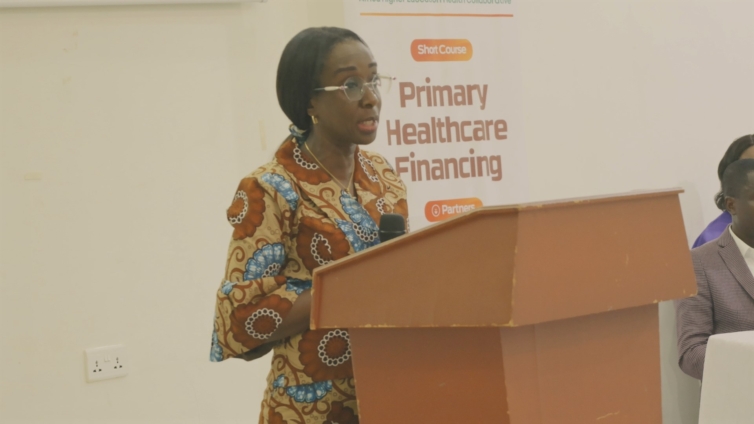The Food and Drugs Authority (FDA) is making a case for health technology assessment in the efficient use of resources for improved healthcare delivery in developing countries.
The CEO of the Authority, Dr Mimi Darko believes Ghana’s healthcare surging reliance on technologies makes it imperative.
“In our pursuit of meeting the demands of evolving trends, particularly in technology and assistive devices, the significance of health technology assessment cannot be overstated.
"Especially in developing countries where resources are often scarce, efficient allocation is paramount.
“Health technology assessment serves as a compass in efficient utilisation of our resources to ensure we have optimal healthcare delivery.
"Especially in Ghana, there is the need for health technology assessment and it has become more pronounced across all facets of the health sector even in the remotest areas,” she noted.
Dr Darko also touched on the role of health regulation in fulfilling the SDGs.
“I am confident the course content will shed light on the vital role of regulatory issues in achieving the Sustainable development Goals,” she charged.
She was speaking at the opening ceremony of the Health Technology Assessment (HTA) and Healthcare Industry and Regulatory Affairs (HIRA) courses by the Africa Higher Education Health Collaborative at the Kwame Nkrumah University of Science and Technology.
The Health Technology Assessment (HTA) and Healthcare Industry and Regulatory Affairs (HIRA) courses are spearheaded by the Health Employment Pillar of the Collaborative led by Dr. Kofi Akohene Mensah.
Health Technology Assessment (HTA) allows a critical assessment of health technologies as a basis for making evidence-based decisions in the health sector.
The course has been accredited by various health professional bodies for Continuous Professional Development (CPD) points.
32 and 30 health personnel were allowed to take part in the second cohort of the Health Technology Assessment (HTA) and Healthcare Industry and Regulatory Affairs (HIRA) courses respectively.
The Principal Investigator of the Collaborative, Prof. Ellis Owusu-Dabo entreated participants to take advantage of the opportunity to impact their community.
The partners in the workshop include: KNUST School of Public Health, The DAAD-PAGEL (German Academic Exchange Service Partnership for the Health Sector in Developing Countries) Accelerating Capacity-Building in Health Systems Research and Management in Africa Project, and the German-West African Centre for Global Health and Pandemic Prevention (G-WAC)
The rest are the Department of Health Care Management at the Technische Universitat Berlin (TUB), Germany, the Norwegian Institute of Public Health, Norway, and the HTA Secretariat of the Ministry of Health, Ghana.
Latest Stories
-
Vasseur questions ‘strange momentum’ of Formula One race director change
8 mins -
“I am disappointed in Kojo Manuel” – Merqury Quaye on “no tie” comment
8 mins -
Nana Kwame Bediako; The beacon of unity
11 mins -
Western Region: NDC youth wing embarks on phase 2 of ‘retail campaign’
36 mins -
Action Chapel International holds annual Impact Convention in November
37 mins -
Jana Foundation urges young women to take up leadership roles
42 mins -
All set for Joy FM Prayer Summit for Peace 2024
53 mins -
Managing Prediabetes with the Help of a Dietitian
1 hour -
Joy FM listeners criticise Achiase Commanding Officer’s election comment
2 hours -
Legal Aid Commission employees threaten strike over poor working conditions
2 hours -
Ghana ranked 7th globally as biggest beneficiary of World Bank funding
2 hours -
IMF board to disburse $360m to Ghana in December after third review
2 hours -
Former Bono Regional NPP organiser donates 13 motorbikes to 12 constituencies
2 hours -
Securities industry: Assets under management estimated at GH¢81.7bn in quarter 3, 2024
2 hours -
Gold Fields Ghana Foundation challenges graduates to maximise benefits of community apprenticeship programme
4 hours

